Much like its predecessor, Kingdom Come: Deliverance 2’s defining ingredient that separates it from fantasy-fuelled RPGs is its commitment to historical realism. Whereas The Witcher 3 may be based on Polish culture and folklore, Warhorse’s first-person action RPG is about immersing you in 15th century Bohemia where the characters you meet aren’t just based on real figures but your actions feel just as believable and consequential as in real life, rather than a typical power fantasy.
While that often means progression can be a more pedestrian affair, having the patience to meet the game on its terms makes for a more genuine form of role-playing, where drawing your sword is rarely the first choice for solving a problem. Which isn’t to say Kingdome Come: Deliverance 2 has a slow start, instead thrusting you in media res into a full-scale castle siege.
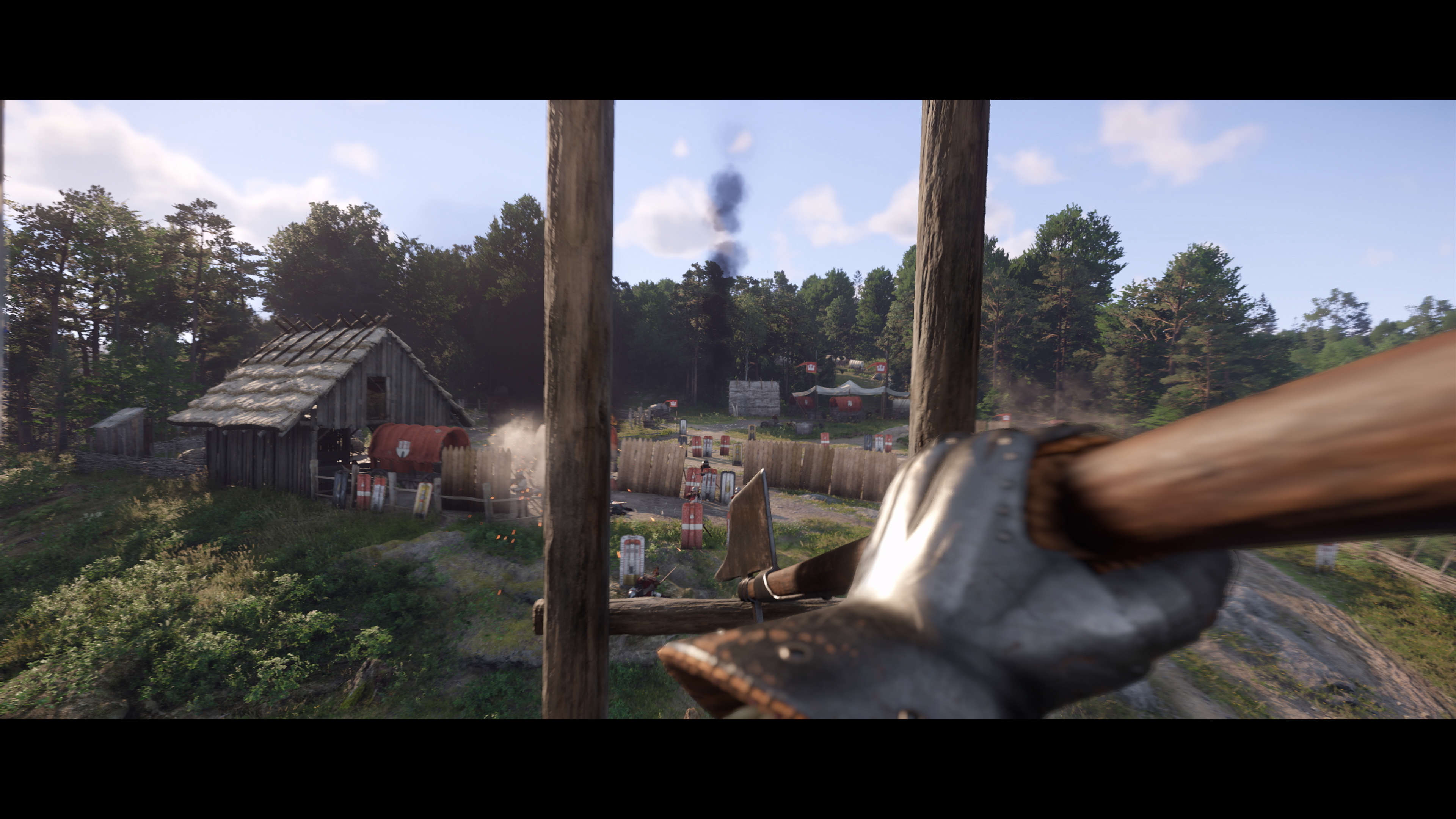
Our returning protagonist, the likeable and occasionally bumbling Henry of Skalitz, has come some way from being an illiterate blacksmith’s apprentice. But even in the context of warring allegiances in the kingdom, some of your immediate concerns when you’re set out questing into the world involve simply trying to find your missing dog, or helping the reclusive herbwoman who saved your life find her daughter. It’s a reminder that you aren’t a powerful hero, but a small cog doing your best amid grand political machinations.
Nonetheless, Kingdom Come: Deliverance 2 is a sequel on a much larger canvas, painted in a variety of brushstrokes. The emphasis on realism may mean life is hard and brutal, especially if you don’t have a groschen to your name, yet there is an equally bawdy tone, backed by colorful characters using equally as colorful language, or where even a seemingly mundane quest can stretch into relatively epic proportions that’ll dominate your next few hours of play. Even if some friction can lead to frustration while occasional glitches break the immersion, its realization of medieval life remains utterly absorbing.
Audentes fortuna iuvat
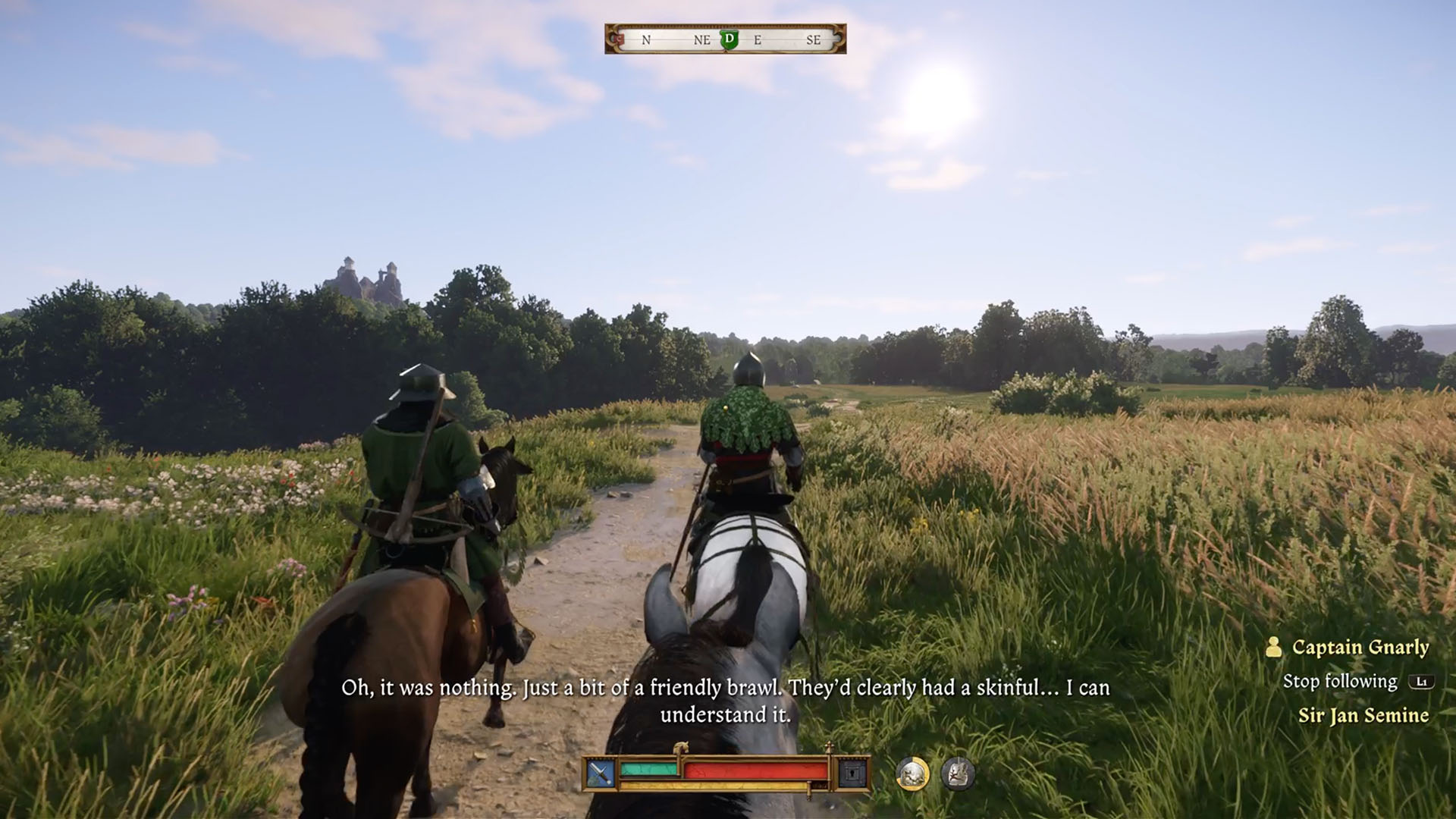
Fast facts
Release date: February 4, 2025
Platform(s): PC, PS5, Xbox Series X
Developer: Warhorse Studios
Publisher: Deep Silver
For an RPG with no spells, the real magic of Kingdom Come: Deliverance 2 is just how believable and beautifully rendered with CryEngine its open world is. That’s especially evident when simply walking or riding across open countryside in the early morning or sunset, without being spoiled by the usual clutter of collectibles or waypoints. Come across a village and it will be about the size that a real medieval village would be with humble amenities. Larger towns are fortified with a few specific guarded entrance points, and waltzing into someone’s private property will immediately be unwelcome, albeit still giving you reasonable time to clear off before escalating.
Naturally, wielding a sword in a tavern or market needlessly will also draw ire from the locals. Instead, you’re encouraged to use your powers of persuasion to affect a favorable outcome, which can depend as much on your appearance as much as your stats. High charisma points alone aren’t enough to charm someone if you don’t dress the part and haven’t had a wash for a week.
This isn’t to say that there aren’t videogamey conveniences available to you, such as fast-travelling to towns you’ve previously visited or being able to advance time so you don’t have to potter around while waiting for a rendezvous. It’s nonetheless intriguing how these systems have some consistency. While time advances while you fast travel, for instance, poor Henry’s hunger and sleep stats will decrease, and he’ll begin to grumble at you for leaving him unrested and unfed should the numbers get dangerously low.
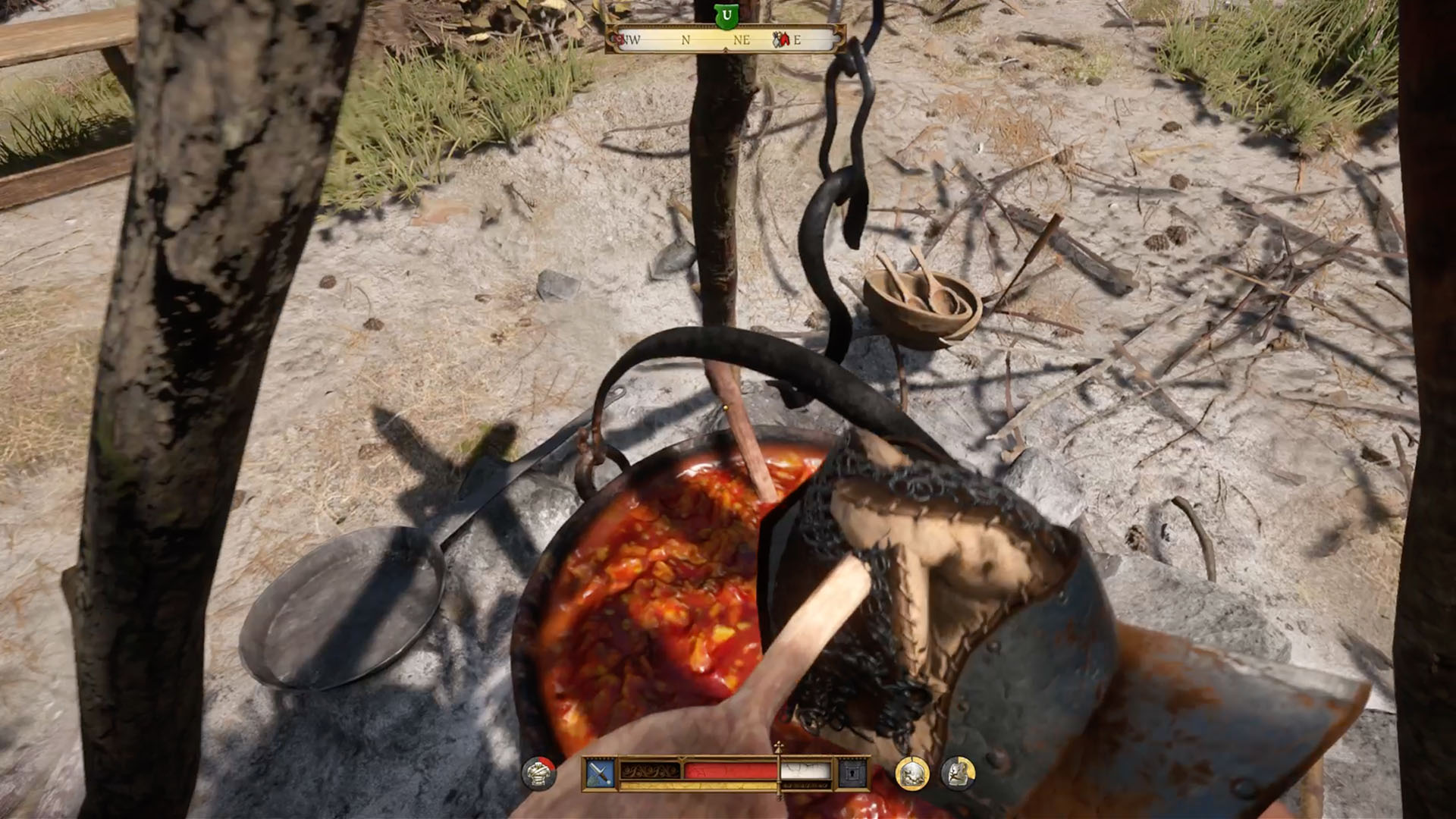
What there’s no getting away from is that progression is purposely slow, even without including the times you may find yourself having to reload a save to try again, contributing to an already lengthy campaign well beyond 60 hours and split between two large regions of Bohemia. Some of that comes naturally as you play, and early on when circumstances leave Henry penniless in beggar’s clothing, you’re primed for a slow and steady climb to go from surviving to thriving, where every coin in your pouch matters.
The first main quest, for instance, has you attempting to gain access to a wedding, which means taking on a handful of menial and tertiary tasks before you can even get close to receiving the coveted invite. But ultimately, you need to put in the work, because much like in real life, the only way to get better at something is to keep doing it. That’s quite literally the case when it comes to crafting weapons or brewing potions, each with their own involved and methodical minigames. There’s no shortcutting these processes, at least not without causing problems down the line.
Despite usually preferring the stealthy approach, I found myself avoiding lockpicking or pickpocketing in the early hours as successfully pulling them off is difficult at first – your novice hand moves wobbly. Yet while the open-ended design for most quests means there’s usually other ways to get what you want, including outright bribery, it also meant when it came to a later quest that required me to sneak into a house to steal an item, opting out of lockpicking earlier on meant my thievery stats and perks hadn’t made any meaningful progression, rendering medium-level locks impossible to crack.
You’re not completely (ahem) locked out, as potions can temporarily supercharge stats. But then that also means acquiring the recipe for it and having the ingredients to brew it. In other words, it all takes time and planning, one way or another.
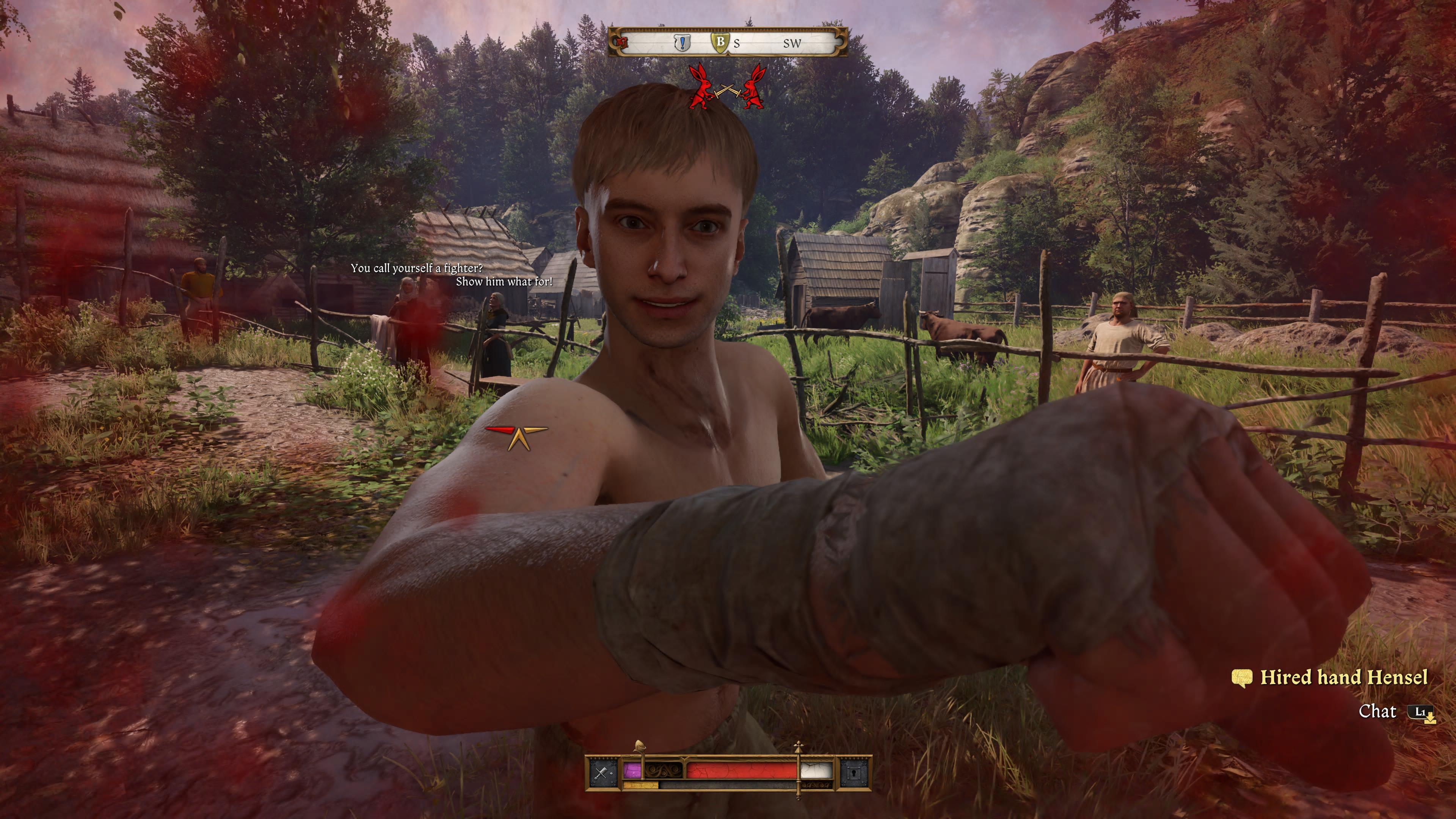
“What there’s no getting away from is that progression is purposely slow.”
Such is the breadth of options available to you that violence rarely needs to be the answer. Though, at times, the dangerous world will require you to rise up to meet it with steel. It’s tempting to avoid bandit skirmishes on the road when you see them coming, but ultimately those will be experience points you lose out on that may put you at a disadvantage in unavoidable scraps later. Of course, beyond combat mastery, other factors like having your weapon sharpened or actually having armor equipped are also vital.
Even then, combat is one of the least appealing aspects of Kingdom Come: Deliverance 2, more like something you have to do rather than something you’d go out of your way to engage in – arguably a realistic response to violence. Its directional system for attacking, blocking, and parrying can feel weighty one moment, yet hard to parse the next. At times, inconsistent animations have hits on enemies you swore connected fail to register.
It’s especially messy during group fights, exacerbated by an annoying targeting system that I found could all too easily disengage at inopportune moments. Of course, you would expect being outnumbered by the enemy to be unwieldy and difficult in real life too, but it’s also unsatisfying when some of these encounters are just about enduring long enough before a cutscene arbitrarily moves things along. Expect to see the partying skeleton on the Game Over screen many times.
The less said about firearms, the better. They’re introduced as a new and devastating weapon but are so horribly cumbersome to use to the point of being useless unless you’re prepared to waste a lot of shots just so you can gradually improve your skill with them. You can understand why it would take longer to load a single shot than to loose an arrow, but there is something especially wilful in the design that the game has an onscreen crosshair by default almost all the time… apart from when you’re holding a ranged weapon.
Getting medieval
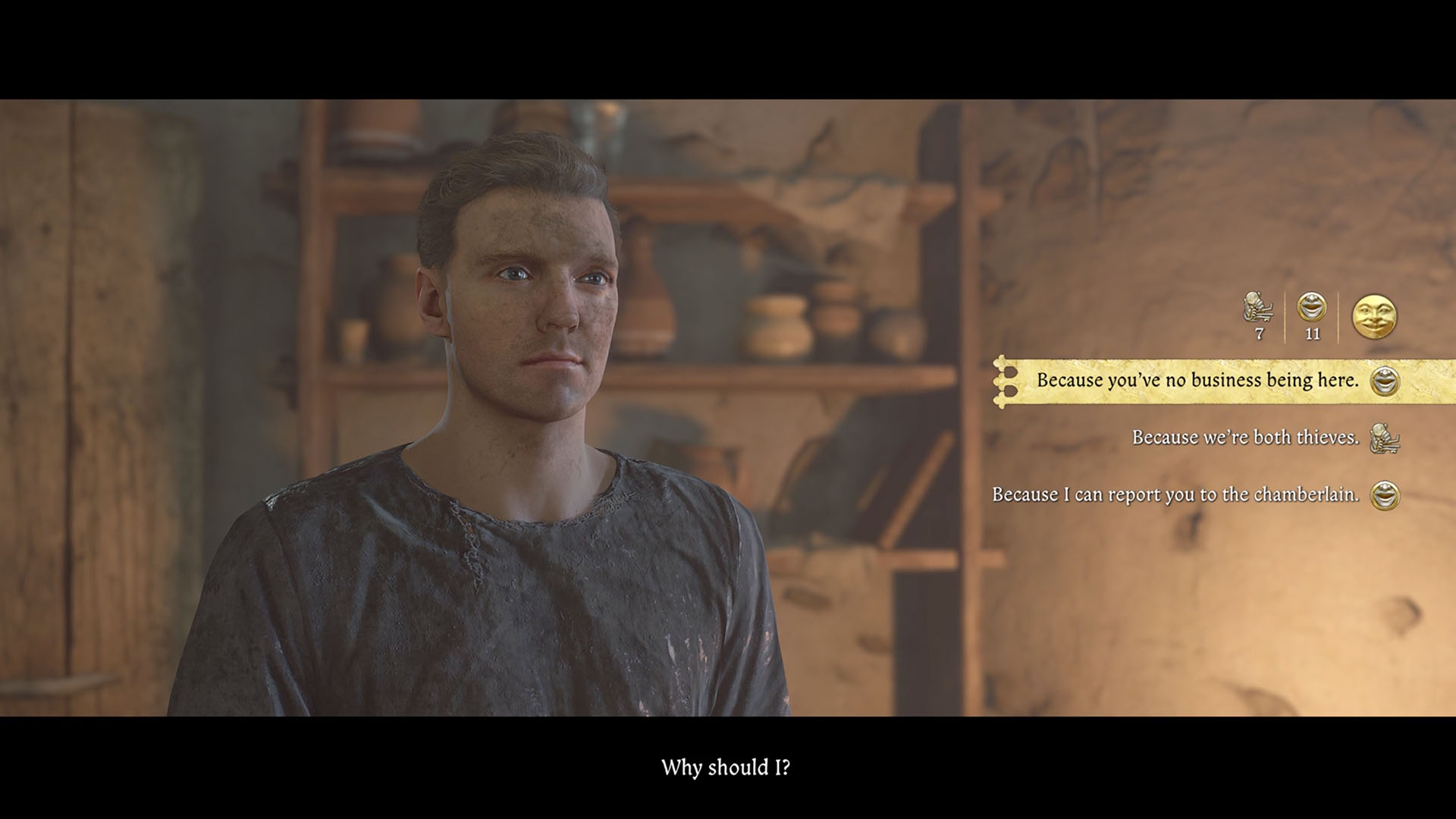
Fresh perspective
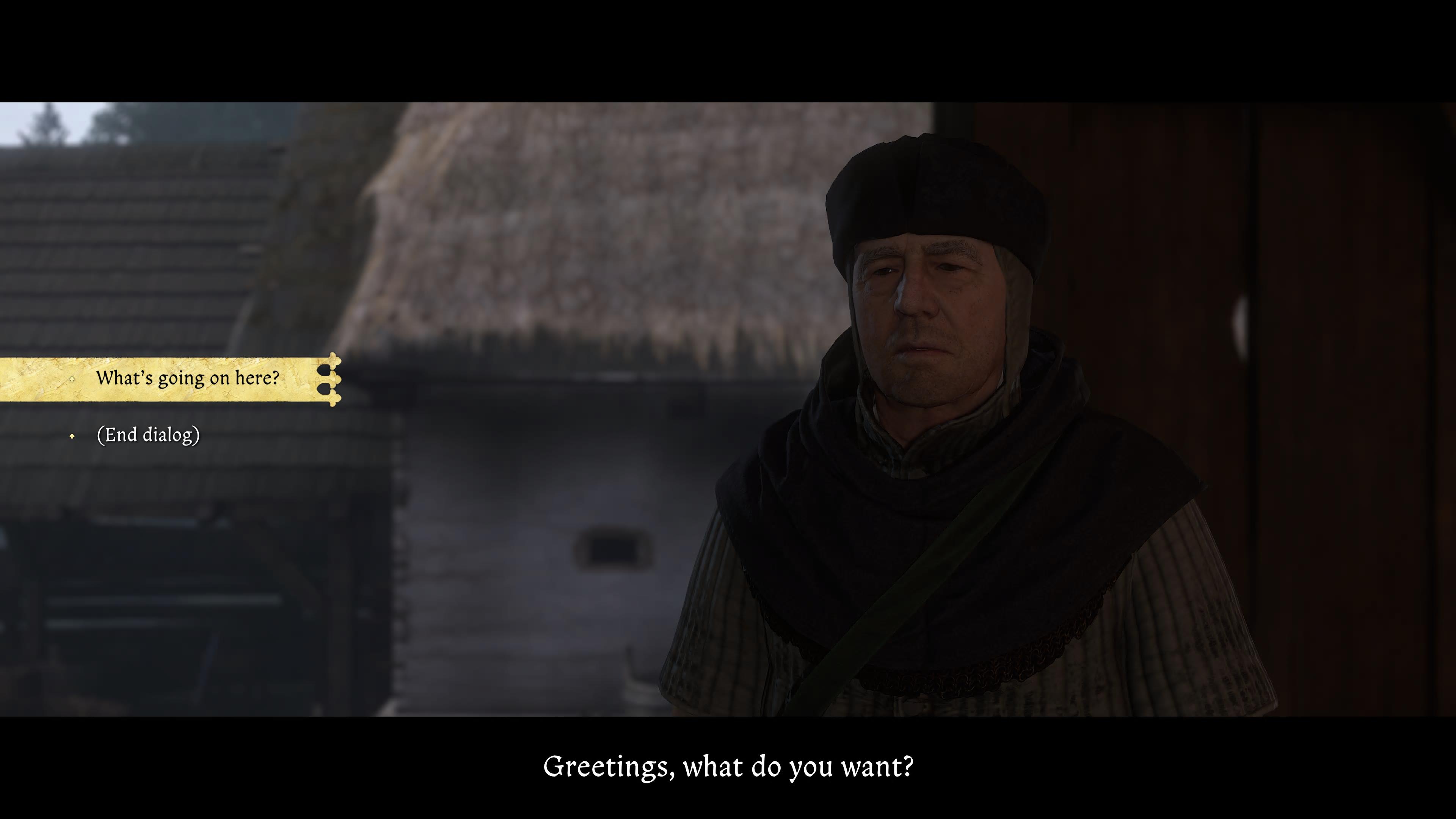
While Henry is primarily your protagonist, the story occasionally switches perspectives where you’ll take control of Father Godwin, a priest who despite being pious also doesn’t hide his enjoyment of wine and women, and a fan favorite from the first game.
For those who really want to be transported to medieval Bohemia, however, there is much to enjoy by slowing down and taking everything in the minutia. The city of Kuttenberg is especially impressive, with each of its districts distinct and faithfully realized, while you could go as far as follow any citizen’s daily routine.
Sometimes that’s actually the best thing to do, too, since some quests have Henry play detective, asking the locals and trying to find leads in his investigation to puzzle out the location of clues – without a marker on the map, mind you. Quests are often lengthy and involved affairs, and will sometimes tangentially lead to other stories beginning to unwind, blossoming the narrative quite naturally.
While it will of course help your stats, it’s just as easy to break away from your main objectives and spend your time gambling with dice, smithing and selling weapons, or hunting animals in the wild (although you’ll also run into trouble as you’ll technically be guilty of poaching the king’s game). But you can also find side quests to undertake from the unlikeliest of sources. Ironically, the best way to find new adventure is by fast-travelling, where there’s always a chance you’ll be interrupted by a random encounter, whether that’s bandits trying to rob an innocent passerby or a stranger who may or may not have good intentions. One of my most surreal moments was encountering a man walking around with an arrow still lodged in his head.
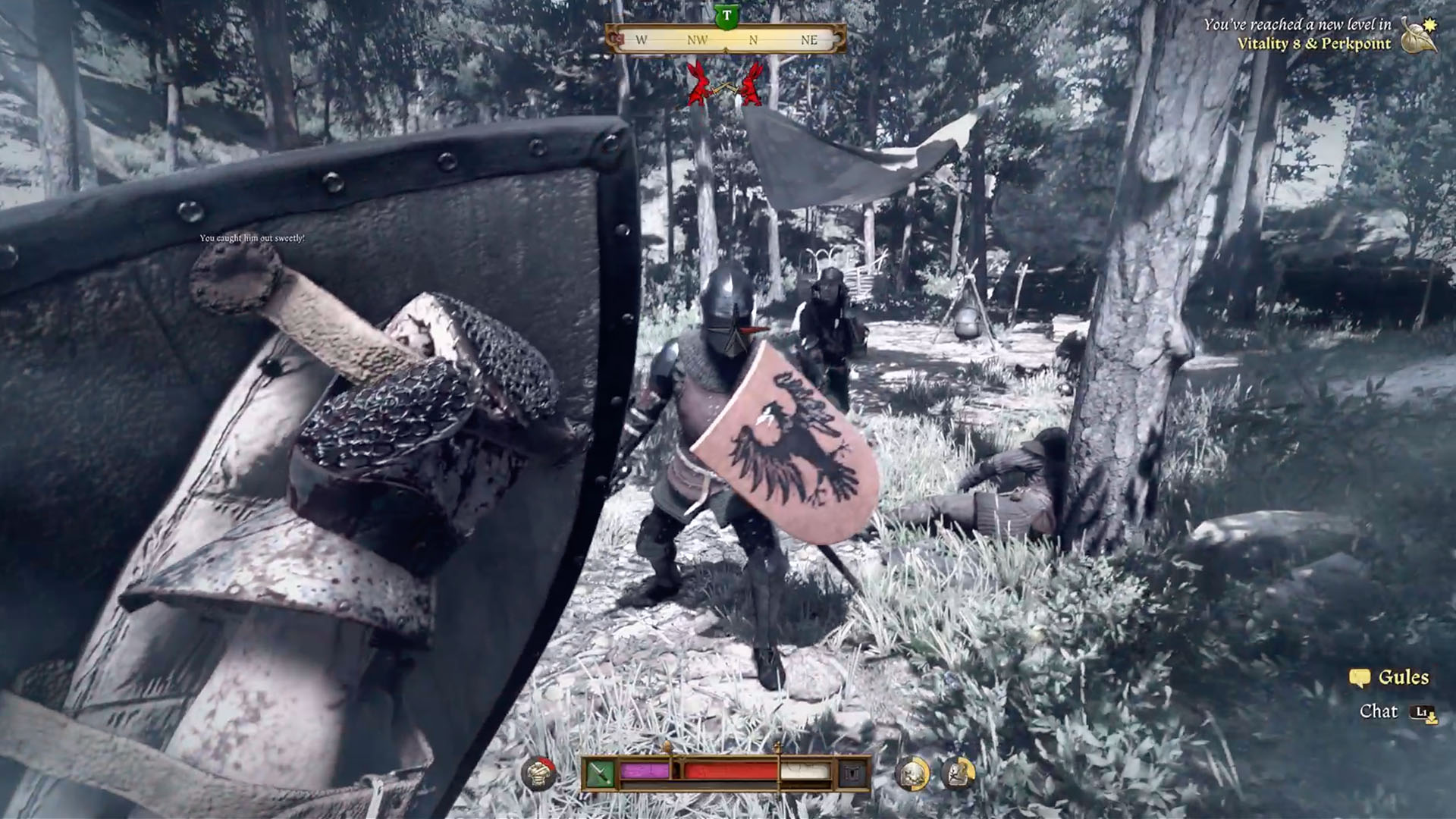
Even if you can’t talk to everyone, the larger scale of Kingdom Come: Deliverance 2 means a much larger script, reportedly more than 2.2 million words. Players may bristle at the quality of the writing, which can flip from earnest and serious to coarse and bawdy, with liberal droppings of c-bombs and ‘Kurva’. The constant reference to women as ‘wench’ can also be cringe-inducing despite being common usage in the middle ages. Katherine, a quick-witted spy Henry teams up with regularly in the story, subverts the mostly silent or servile housewives and bathmaids you encounter, but that doesn’t stop the game from pointing out her other assets first.
Yet these different facets to the tone also add to the authenticity, where life is diverse and riddled with contradictions. Talk of God is in earnest in between drinking, cursing, and whoring, death can come suddenly but the game doesn’t revel in gratuitous violence. Even a mission that requires you to torture someone allows you to weigh up the moral unpleasantness of the task and even avoid it altogether, not least because you’ll find yourself on the receiving end. In contrast to the exclusively white population of the first game, this sequel makes the effort of including other ethnicities in Bohemia, which impact both the narrative and the gameplay.
Overall then, Kingdom Come: Deliverance 2 is a vast accomplishment, an even more complete and immersive follow-up that paints a wide picture of medieval life. Provided you have the patience with its pacing and are willing to put in the hours to get deeper into its systems rather than just trying to min-max your way out of a problem at optimal speed, it’s a thoroughly absorbing RPG that’s quite unlike anything else.
Kingdom Come: Deliverance 2 was reviewed on PS5 Pro, with a code provided by the publisher.
Looking for another epic adventure? Check out our best RPG games!
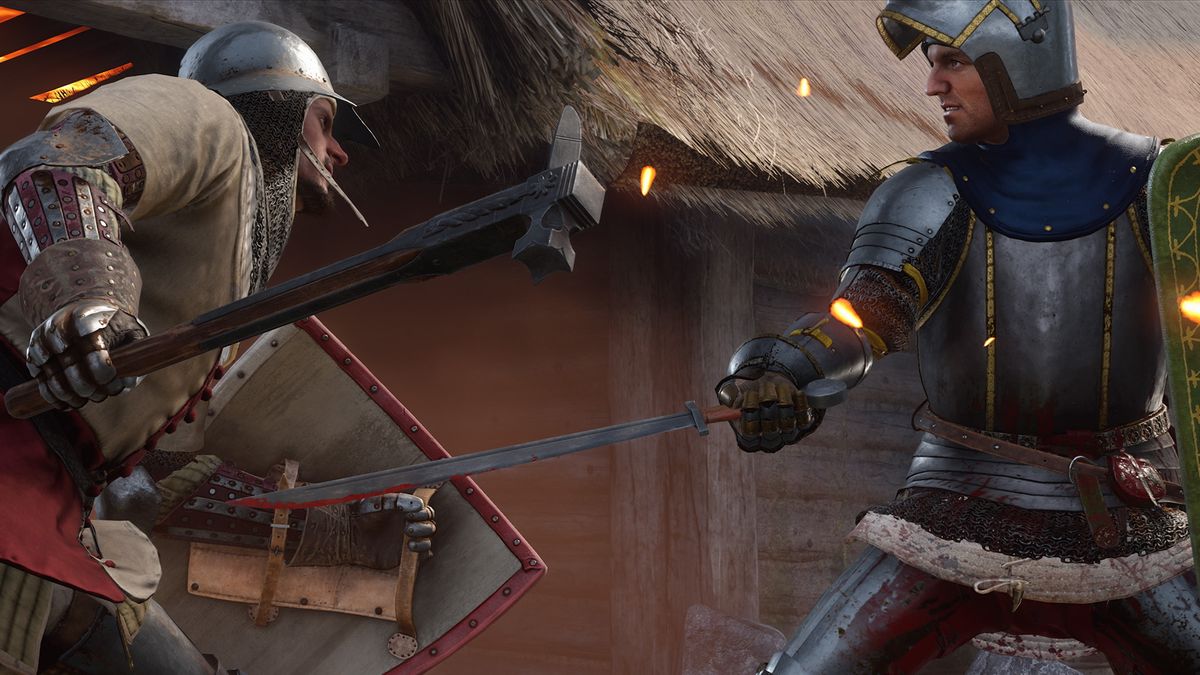


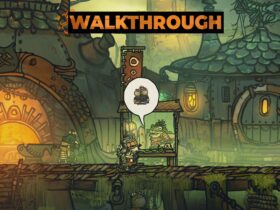








Leave a Reply